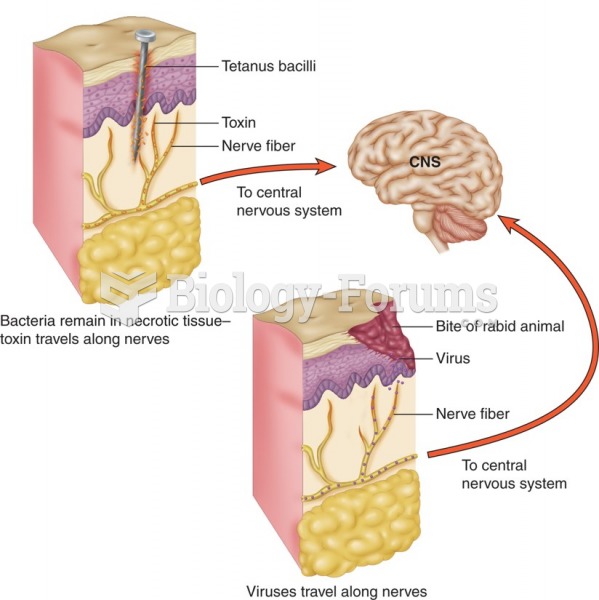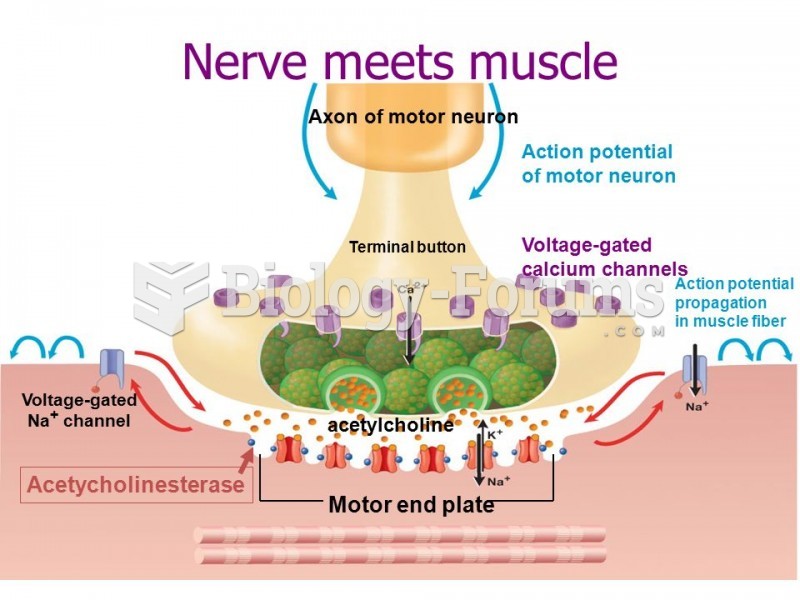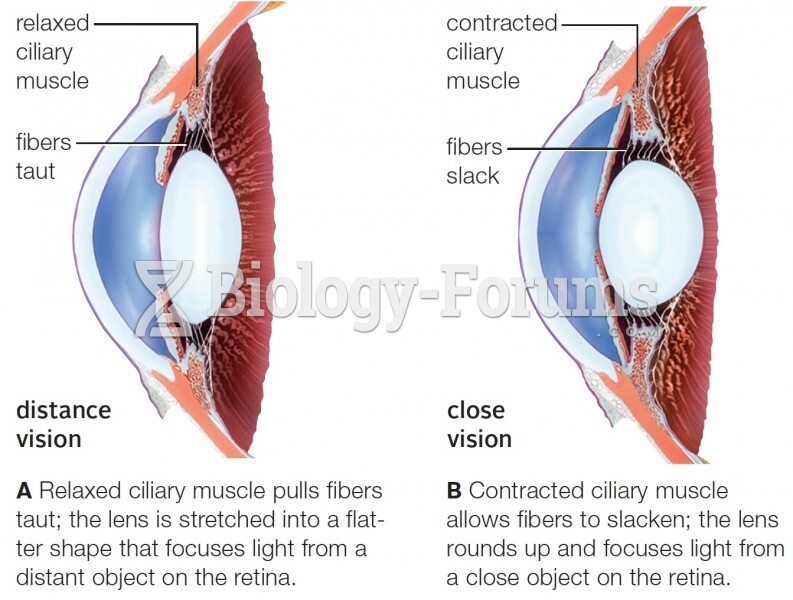|
|
|
On average, someone in the United States has a stroke about every 40 seconds. This is about 795,000 people per year.
There used to be a metric calendar, as well as metric clocks. The metric calendar, or "French Republican Calendar" divided the year into 12 months, but each month was divided into three 10-day weeks. Each day had 10 decimal hours. Each hour had 100 decimal minutes. Due to lack of popularity, the metric clocks and calendars were ended in 1795, three years after they had been first marketed.
Human kidneys will clean about 1 million gallons of blood in an average lifetime.
The B-complex vitamins and vitamin C are not stored in the body and must be replaced each day.
Side effects from substance abuse include nausea, dehydration, reduced productivitiy, and dependence. Though these effects usually worsen over time, the constant need for the substance often overcomes rational thinking.







